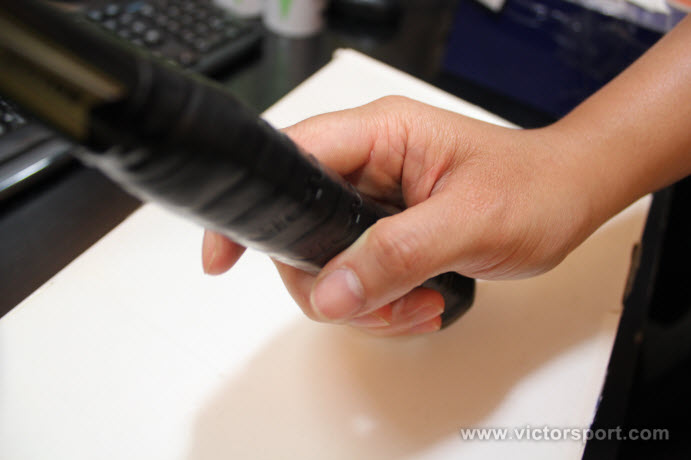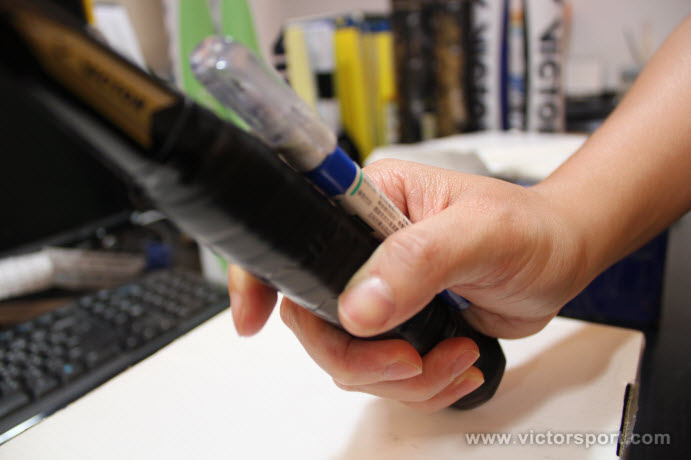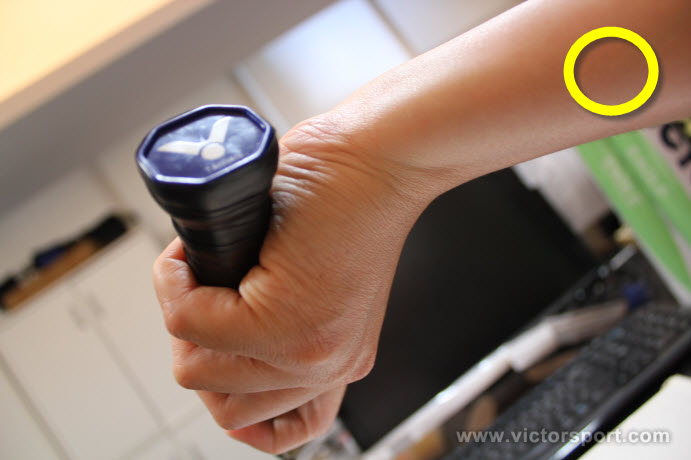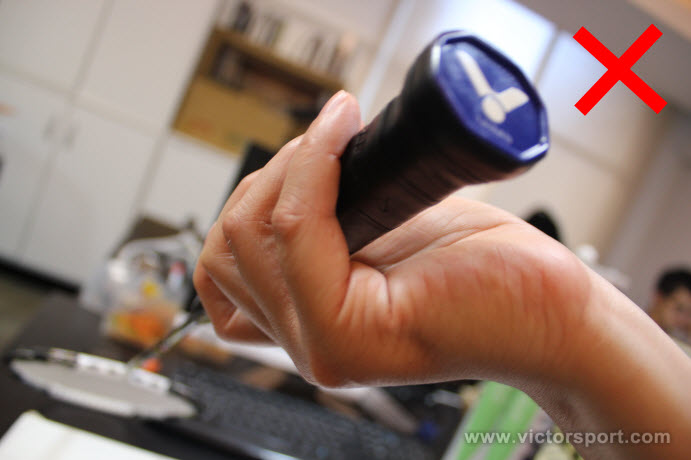Repeatedly practicing the basic skills of badminton (the
nine main skills) will improve your playing ability. After grasping these skills, our next task is to learn various techniques for hitting the shuttlecock.
Technique refers to the use of the arm or wrist to play a shot that is hard to anticipate, to deceive your opponent and increase the effectiveness of the return shot, for example by pretending to play a drop shot but, in the instant the shuttlecock is hit, changing the angle of the racket face and playing a net cross-court shot.
Hold the racket lightly, instantly exert power
The key to using various techniques is to not hold the racket too tightly. To allow different shots to be played flexibly, when the shuttlecock is hit, there should be a suitable gap between your hand and the racket; only grasp the racket firmly at the moment of impact, instantly exerting power.
The idea is like when we move a heavy object and say: “One, two, three”! Only when three is reached do we exert force. Using this method of exerting force we will save energy, as well as being able to choose from a variety of shots when the shuttlecock is hit.
Maintaining a suitable space when you hold the racket will help you play more diverse shots
Four simple steps to teach you how to hold the racket naturally
1. Imagine you are holding a raw egg, get used to the feeling of control the tightness of your grip.
2. Hold the racket in your little finger, ring finger and middle finger.
3. The thumb and index finger only lightly grip the handle.
4. Avoid the index finger and middle finger tightly pressing against each other.
Use small items around you (like a pen or a correction pen) to practice the correct way to hold a racket.
When we prepare to receive the shuttlecock, there should be a suitable space between the palm and handle; this space allows us to rotate the racket more dexterously, allowing us to change the angle the shuttlecock is hit to be changed and play a variety of shots.
Many players grip the racket tightly all the time; this reduces their shot options when they hit the shuttlecock and, if it becomes habit, it will be a big obstacle in the way of improvement in shuttlecock striking technique.
Player questions
If I hold the racket too tightly is there anything I do to improve the situation?
Of course there is; we suggest you try the following methods:
1. Learn how to hold the racket naturally following the above four steps
2. Use the movement of your fingers to repeatedly rotate the racket
3. Practice playing delicate shots that require relatively little power, such as net drop shot, stab shot and net cross court shot.
4. Practice suddenly gripping the handle tightly and then relaxing your grip.
5. Carry out swinging practice——without hitting the shuttlecock: maintain a relaxed grip when you swing, only gripping the handle firmly at the imagined moment of impact
6. Carry out swinging practice——hit the shuttlecock
Reminder
When the racket is held lightly, the bottom of the handle should still tightly press against the heel of the hand (as shown in the photograph on the left below).If the bottom of the racket doesn’t press against the heel of the hand (as in the photograph on the right) the racket can wobble easily when swung, be hard to control, and can even fall from the hand!
If you practice repeatedly you will be able to play a wider variety of shots
Professional players display an array of stunning shots on court. Many ordinary players want to increase their playing ability by grasping these technique for playing these shots through repeated practice, then use them on court. To play a wide variety of shots, holding the racket correctly is the key basic requirement!
After you learn how to hold the racket correctly by repeatedly practicing in accordance with the training methods in his text, the next thing to learn is precise control of the wrist and fingers because “the slightest different causes a huge loss.”. This will not only improve your playing skill, it will also allow you to have fun by playing different shots when you play a match.




